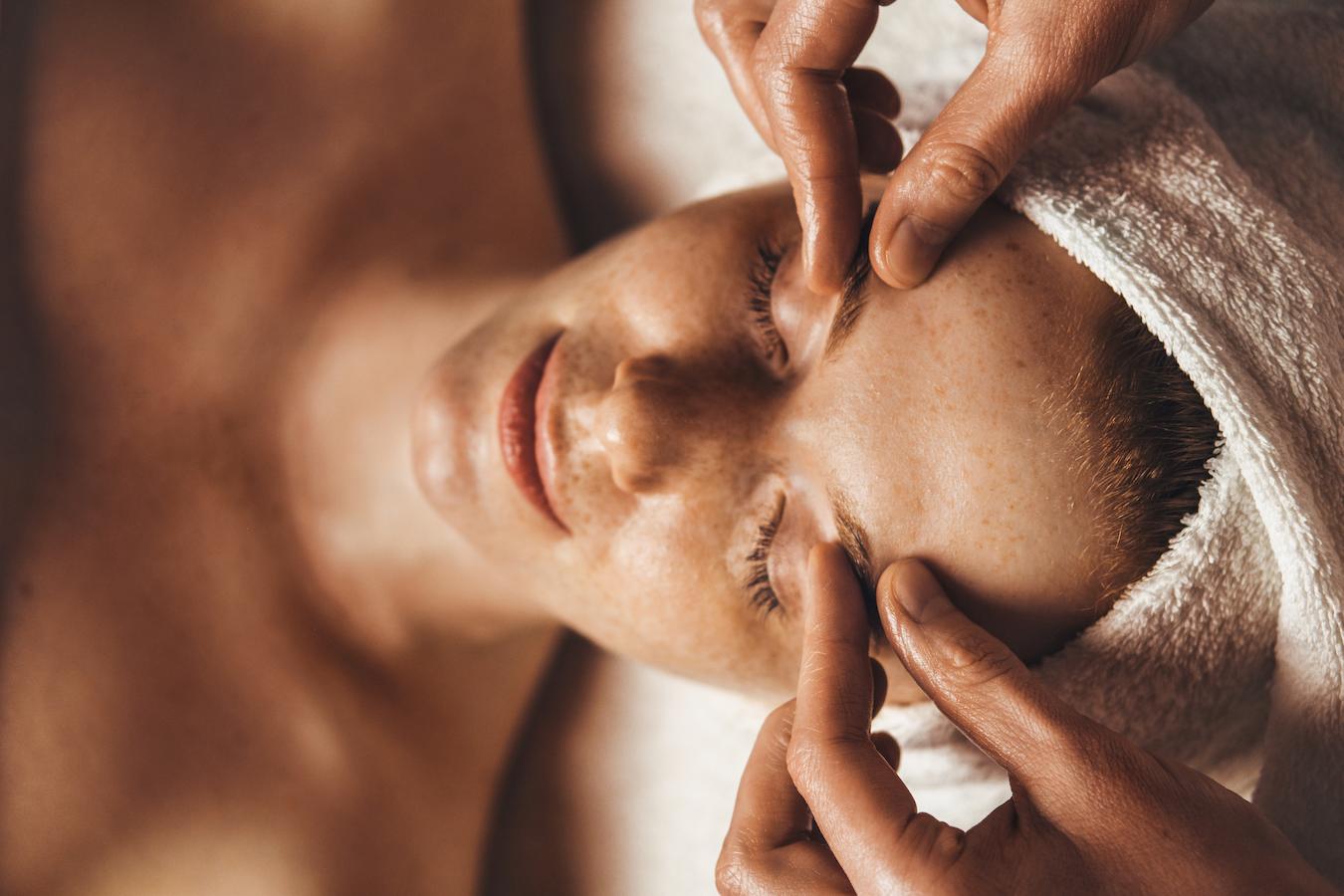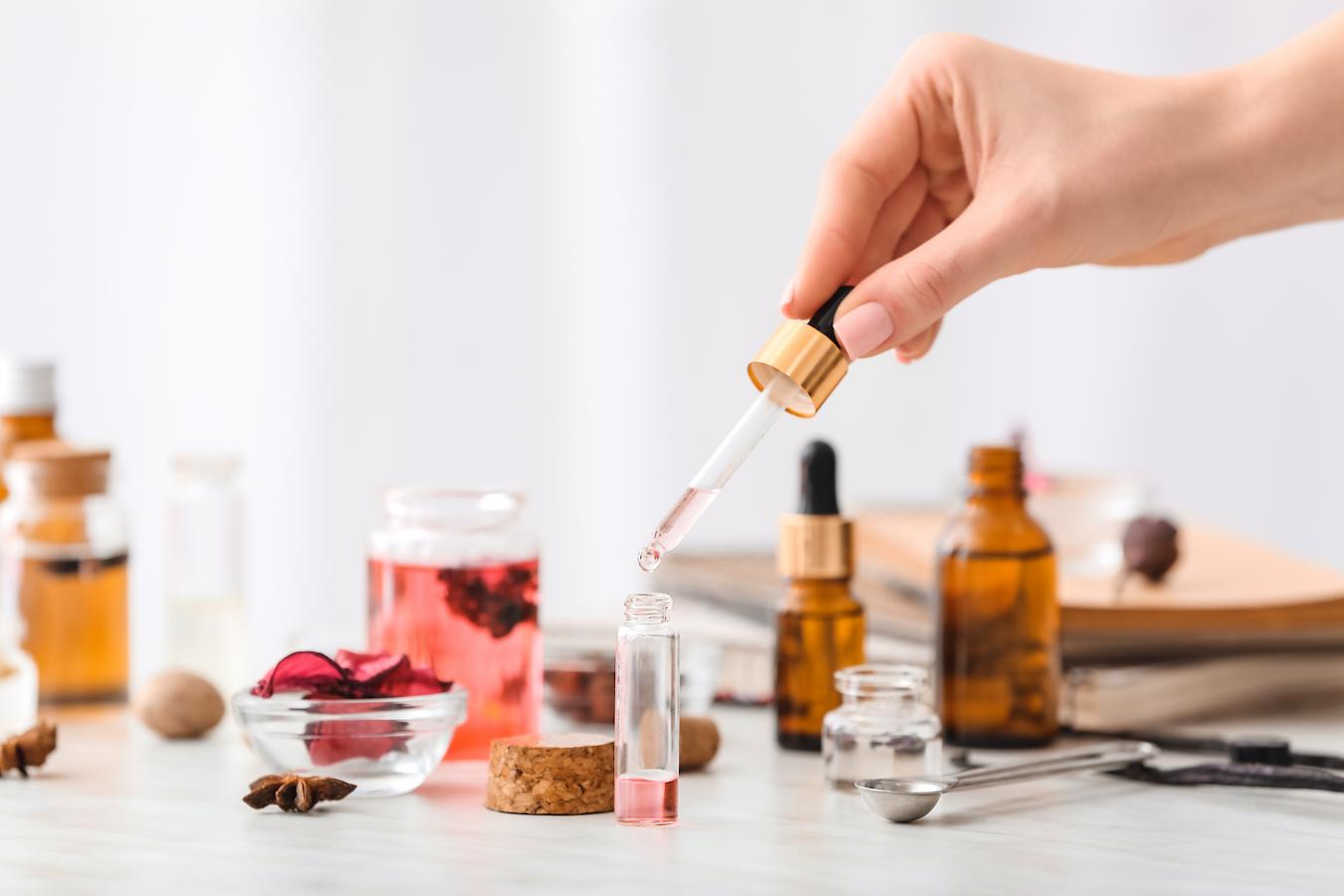Does your mental well-being and state of mind feel disconnected at times? Though psychological well-being is tightly linked to mental health, these two facets of wellness are not synonymous. Psychological health is about more than the absence and prevention of illnesses - it involves the manifestation of a positive state of mind.
At a Glance
- Psychological well-being is about a positive mind state and healthy cognitive function.
- Psychological wellness is closely linked to mental well-being and physical health.
- An uplifting daily skincare routine centered around mood-boosting, all-natural products can help you look good and feel good.
- There are six components of psychological well-being, which include self-acceptance, life purpose, personal growth, autonomy, healthy relationships, and self-reliance.
Your psychological well-being plays a role in emotional intelligence, cognitive function, and overall quality of life. From ritualistic self-care routines to community involvement, there are many ways to improve your psychological wellness.
Keep reading, and we'll share everything there is to know about psychological well-being and how to better yours.
See Related: What Does Mental State Mean?
What is Psychological Well-Being?
You're likely familiar with the importance of physical health. Eating a well-balanced diet, regularly exercising, and spending time outdoors are essential for a happy and fulfilling life. However, that's not all it takes.
Your mental wellness is comprised of various aspects. Your psychological well-being is closely related to your mental health, though it is still considered to be separate. Your psychological well-being is all about your mental state - when you're psychologically well, you feel positive about the life you're living.
However, it's not so black-and-white. Psychological well-being can mean different things to different people—it's up to you and your interpretation of it. Additionally, everyone requires different things to be psychologically healthy and happy.
Psychological Health and Mental Health
Because psychological and mental well-being aren't identical, it's a good idea to understand their differences. Though immensely similar, they do have some key distinctions.
Mental health refers to the entirety of what someone thinks, feels, and behaves. It encompasses someone's complete emotional, social, and psychological well-being.
On the other hand, psychological health dives into the intricacies of one's mind and how it functions. Psychological wellness refers to the state of optimal mental functioning.
Mental health has a much broader scope than psychological health. Psychological health studies behavioral patterns and mental processes, while mental health is more concerned with overall emotional and social well-being.
Many mental health treatments involve combinations of therapy, counseling, and lifestyle changes to invoke positive changes. Psychological health treatments usually take a broader approach, utilizing anything from cognitive-behavior therapy to psychoanalysis.
How Does Psychological Well-Being Impact Physical Health?
If you can see a distinction between mental health and psychological well-being, then you are sure to see one between physical health and physiological well-being.
Physical well-being is easier to understand, as it has to do with the tangible side of wellness. It can involve moderate exercise plans, proper nutrition, and adequate rest. Though different, physical health and psychological well-being are deeply interwoven.
Mental wellness can largely impact your physical body, and research even shows that physical activity has a clear influence on psychological well-being. Despite this fact, globally, almost 30% of adults live a sedentary lifestyle with little physical activity.
On the other hand, poor mental health can also lead to harmful physical practices. Depression is linked to countless chronic diseases like diabetes, asthma, and cancer. Those with mental illness are also likely to develop sleep problems, which can be detrimental to overall well-being.
The Effects of Mental Well-Being on Skin Health
The negative effects of poor mental health can even extend to your skin. Research shows that psoriasis, a dermatological condition, is closely associated with acute stress and depression. But painful skin conditions aren't the only potential side effect of lacking mental wellness.
Your skin is an outward reflection of your inner wellness. When you feel stressed or tense, it's likely that your complexion will suffer as a result. If you are struggling to brighten your dull and lackluster skin, it might be worthwhile to rejuvenate your day-to-day routine.
A ritualistic self-care regimen can nourish your skin while providing much-needed structure. A fulfilling daily routine is about more than brightening your beauty - it's also a cornerstone of good psychological well-being.
Mental health and self-care go hand-in-hand. In addition to following a carefully curated skincare routine, you should also get enough quality sleep, maintain a healthy work-life balance, and take breaks from the screen.
Bonus: What Does Vitamin A Do For Your Skin?
A Skincare Ritual for Better Wellness, Inside and Outside
Your chosen skincare products should help you look good and feel good. It's important to find effective formulas that treat your mind and body well. At JUARA, our self-care creations are inspired by ancient wellness rituals that have stood for centuries. We blend our all-natural products with Western skincare science to ensure efficacy.
Our focus on holistic healing goes beyond silky body cremes and luxurious dry oils. Starting with our Rice Facial Cleanser and ending with our Island Comfort Green Tea, each product we offer is designed to nourish and nurture your mind, body, and soul.
For improving psychological well-being, it's a good idea to start with a multi-step skincare routine that you can follow morning and night. And for a mindful and self-comforting experience, you should try indulging in an at-home self-care spa day.
Here's what that can look like!
This ultra-moisturizing shower gel doesn't just cleanse and polish your skin. It whisks away any and all dirt, bacteria, and oil hiding in your pores in order to reveal a youthful and glowing complexion.
This sulfate-free formula doesn't strip your skin of its natural hydration and leaves you feeling fresh from head to toe. It features our signature candlenut oil, a non-greasy, velvety ingredient that can heal and soothe chapped, dry skin.
With your skin clean and rejuvenated, it's time to go in and deep-clean your pores. This retexturizing exfoliator is a must-have if you have rough, dull skin. It can be used on damp skin in the shower or as a dry product.
Just like our Candlenut Hydrating Shower Gel, it is formulated with our iconic Candlenut fragrance, a subtle yet sweet scent that will transport you on a tropical vacation. If your skin needs a bit more oomph, try using a high-energy, coffee-infused body scrub instead.
Now that you're out of the shower, it's time to pamper and protect your skin. Applying a moisturizing body lotion can keep your skin supple and hydrated. And there's no better formula than our Tiare Jasmine Body Creme (except for our best-selling Candlenut Body Creme.)
This lightweight formula glides over the skin to leave it silky smooth and supple. If you've been searching for the perfect anti-aging treatment, this cloud-like body cream will be your answer.
Here's another product featured in our Candlenut Collection. This ultra-luxe dry oil locks in the moisture of your body creme and adds a finishing shine. It's rich in vitamins and minerals that further heal and nourish your skin, ideal if your dehydrated skin needs some TLC.
In addition to candlenut oil, it contains moringa oleifera, passion fruit oil, and turmeric oil. Each ingredient works harmoniously to firm and brighten skin.
Aromatherapy can be powerful. Certain scents can invoke positive feelings, which can be helpful when enhancing psychological well-being. Perfume oil is for more than smelling irresistible. It's also a great way to boost your mood and uplift your spirit!
Components of Psychological Well-Being
A great way to fully understand psychological well-being is to dive deep into each component.
Various models have been developed over the years that outline each definable aspect of psychological wellness. Most often, people break it up into six key components.
- Self-acceptance
- Life purpose
- Personal growth and development
- Autonomy and independence
- Positive relationships
- Self-reliance
#1. Self-Acceptance
Self-acceptance involves having a positive attitude about oneself. Many view this as the most important part of psychological well-being. Embracing and accepting yourself is a powerful practice that impacts the rest of your overall well-being.
Self-acceptance is multifaceted. On the one hand, it involves accepting your flaws, internal and external. All of your weaknesses and imperfections must be recognized and embraced. After all, there's no such thing as a perfect person, and your faults make you who you are!
On the other hand, self-acceptance is about curating a positive self-image. This is critical for self-esteem and life satisfaction. Be compassionate with yourself, and treat yourself with kindness and understanding.
#2. Life Purpose
Positive psychological well-being also relies on one finding a life purpose. It can be incredibly hard to find motivation and happiness in life when you don't see a purpose. Community involvement can be very beneficial here.
#3. Personal Growth and Development
Psychological well-being involves personal growth and development. Throughout your life, it's important to set and reach achievable goals. This helps you learn new skills and challenge yourself. All of this allows you to mentally thrive!
#4. Autonomy and Independence
Especially in a world run by social media, it can be hard to find happiness outside of social norms. The pressure placed on us by society can be extremely overwhelming, a burden that can damage our psychological well-being.
Autonomy, when it comes to psychological wellness, is all about finding freedom outside of social pressure. It's important to find happiness on your own and be true to yourself. Authentic living is powerful and paves the way for a fulfilling and satisfying life.
#5. Positive Relationships
It's essential to foster positive relationships with the people around you. Spending time with loved ones is a great way to give your mental wellness a positive boost. Loneliness and self-isolation can be very damaging to your overall well-being.
But just being surrounded by bodies isn't enough. You need to dive deeper than that. Form deep connections through community involvement in order to develop a strong social support system.
#6. Self-Reliance
Environmental mastery is a key part of psychological well-being. Feeling capable and empowered with your situation is essential. It's important to find opportunities to easily manage and navigate your environment.
How to Improve Your Psychological Well-Being
At first glance, promoting emotional well-being and positive psychological wellness might seem complicated. How can you effectively enhance your day-to-day life in such a busy world? Luckily, it's easier than you think.
At the root of it all is holistic wellness. Adopting a complete approach to your overall well-being is critical. As long as you maintain this mindset, the rest of the pieces are sure to fall into place.
When it comes to improving your psychological well-being, it's important to prioritize the six components we previously covered. These create the foundation for optimal psychological well-being and a positive mind state. However, there's more you can actively do to establish a better life for your mind, body, and soul.
-
Practice mindfulness. Meditation, yoga, and other self-healing practices can help you be more mindful of the present moment.
-
Ritualistic skincare. Taking care of your skin does more than renew an aged complexion. A daily routine gives your life structure and balance.
-
Journal. Recounting your day-to-day life can foster gratitude and improve self-awareness.
-
Community involvement. Being involved with a community gives your life purpose and helps you develop meaningful connections with people around you.
Of course, there's plenty more you can do to promote good psychological well-being. Find a path that suits you best, and follow it with grace and an open heart!
Keep Reading: What Is Skin pH And Why Does It Matter?
--
Juara Skincare incorporates ancient rituals with Western skincare science, creating the ultimate beauty experience. We aim to transport you from the mundane to the extraordinary with our exotic ingredients, intoxicating scents, and powerful, skin-improving formulas. All of our products are nutrient-rich and botanically based. We are proud to be certified cruelty-free. Get the latest skin care tips and info on Juara products by following us on Twitter, Facebook, Instagram, LinkedIn, and Pinterest.














